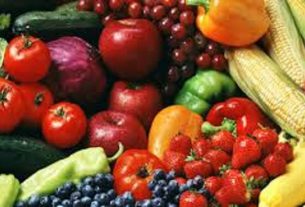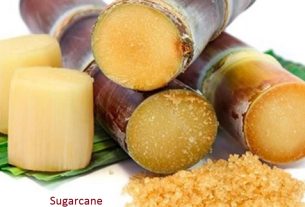From the very beginning, man instinctively knew that he must eat. But the knowledge of what to eat wasn’t something that came instantaneously, rather it took some trial and error approaches before knowing which food is good and which is bad.
Some made him sick while others made him more energetic.
Gradually, he learned to eat more of the foods that made him feel more energetic when he felt low energy or sick. He reserved such foods for when he needed them, and called them medicine instead of food, and thus began man’s relationship with medicinal herbs.
It was much later, after he had identified certain plants as medicine that he started preserving and storing them for later uses. Those dried herbs later came to be known as drugs.
The word drug comes from the Dutch word “droog” which means ‘dried plant’.
It wasn’t long before even ancient man recognised that Herbs are complex organisms that have a biochemical diversity of phytochemicals that can protect, support, or stimulate healing.
The following timeline shows some of the key dates and major points in the history of herbal medicine.
- 3500 – 4000 B.C
The first findings of herbal medicine records in papyrus, animal skins, and cave walls were discovered and carbon dating technology was used to determine the approximate age of such findings. These were traced back to ancient Egypt, as far back as between 3500 to 4000 B.C - 2800 B.C.
The first written record on scrolls, of herbal medicine use showed up. The Traditional Chinese Medicine and the Ayurvedic Medicine of India records were discovered. - 400 B.C.
The Greeks joined the herbal medicine game. Hippocrates stressed the idea that diet, exercise, and overall happiness formed the foundation of wellness. - 50 A.D.
With the immense power and influence of the Roman Empire, they took their traditional medicine everywhere they conquered. They spread herbal medicine around to all their subordinate states. - 800 A.D.
Monks took over the herbal medicine field with herbal gardens at most monasteries and infirmaries for the sick and injured. - 1100 A.D.
The Arab world became a center of medicinal influence. Physician Avicenna wrote the Canon of Medicine, which gave mention to herbal medicines. - 1500 A.D.
Herbal medicine and herbalists were promoted and supported by Henry VII and the Parliament, due to the large number of untrained apothecaries giving substandard care. - 1600 A.D.
The Dark Ages: Herbs were used in treating the poor, while extracts of plants, minerals, and animals (the “drugs”), were used for the rich. - 1700 A.D.
Herbal medicine got another high-profile endorsement from Preacher Charles Wesley. He advocated for sensible eating, good hygiene, and herbal treatments for healthy living. - 1800 A.D.
Pharmaceuticals began to hit the scene and herbal treatments took a back seat. As side effects from the drugs began to be documented, herbal remedies came into the limelight again. The National Association of Medical Herbalists was formed. - 1890 A.D
The term naturopathy was coined in 1895 by John Scheel, and purchased by Benedict Lust, whom naturopaths consider to be the “Father of U.S. Naturopathy”.
Many more people started opting for Herbal Medicine over Pharmaceutical drugs. - 1900 A.D.
The lack of availability of drugs during World War I increased the use of herbal medicines again. After the war pharmaceutical production increased and penicillin was discovered. The British Herbal Medicine Association was founded and produced the British Herbal Pharmacopoeia. People began to express concern over the large number of side effects and environmental impact of the drugs of the 1950s. - 2000 A.D.
EU took action on the regulation and testing of herbal medicines similar to those used for pharmaceuticals. - In a poll conducted in 2002, 74% of the American population desired a more natural approach to health care, thus they prefer Herbal Medicine, again.
- In 2010, the global retail sale of botanical dietary supplements( Herbal Medicine) amounted to over 25 billion dollars.
In 2012 and beyond: People all over the world started advocating for more second opinions on health matters.
Herbal medicine started gaining ground as part of Alternative and Complementary Medicine. Whatever is part and parcel of Nature may only be suppressed, but can never be completely eradicated. - Professor Kayode Oseni is the Deputy Provost of the National College of Natural Medicine, and the Dean of the School of Natural Medicine, Cyrillic College of Homeopathy and Holistic Health Sciences.





